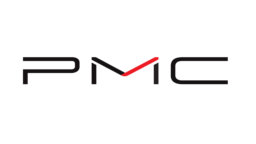“Historic” was the adjective of choice for artists, songwriters and politicians alike when Congress passed the Music Modernization Act last year. The overdue bundle of reform — intended to update copyright rules for the streaming age and help music-makers take home more money — was an industry-wide effort, years in the making.
The MMA’s passage drew the template for a new licensing structure. But the finer details of that structure have yet to be delineated. One facet is the establishment of a “mechanical licensing collective” (MLC), a new group that will help streamline the current copyright maze by administrating a new blanket mechanical license for digital on-demand services.
That group’s specific composition and process — details of which would’ve been too in-the-weeds to write into the bill itself — are what Congress must now determine. The U.S. Copyright Office has opened up submissions for written proposals on how to proceed, which it’s requesting from now till March, and it will make its decision on an applicant group to form the MLC by July 8th, 2019.
What do these seemingly minor details matter for the music industry? Quite a bit.
Music copyright is currently a byzantine network of dozens of laws, loopholes, administering parties and royalties collections agencies. In order to tighten the way money passes to rights-holders, the Copyright Office needs to settle on a number of meticulous decisions such as whether the new collective should take on debt, how or if it should hold reserve funds, how to deal with unclaimed royalties and — perhaps most crucially — how to set up a central database that will ideally tie together all the scattered metadata from recordings, rights management groups and digital service providers.
The lack of an existing database to do all that is the reason the music industry has been so fired up about “missing” royalties from Spotify and its peers: It’s not that streaming services are intentionally holding back on payments, but rather they sometimes lack the correct, error-free information on the back-end to deliver the money that’s due.
There are a number of organizations already vying for control of the yet-uncreated MLC, from major industry groups (like the National Music Publishers Association) to artists themselves (like the Police drummer Stewart Copeland, representing the newly-formed American Music Licensing Collective).
But further adding to the complexity of the matter, as Billboard points out, is that Congress has outlined what it’s looking for in proposals in such a way that’s not fully aligned with what some industry groups wanted when they were lobbying for the creation of the MLC in the first place — and others are concerned about potential conflicts of interest if tech groups or people sitting on multiple boards are allowed to be a part of the MLC.
In any case: President Trump’s signing of the MMA into law at the White House in October only marked one hurdle surpassed.






